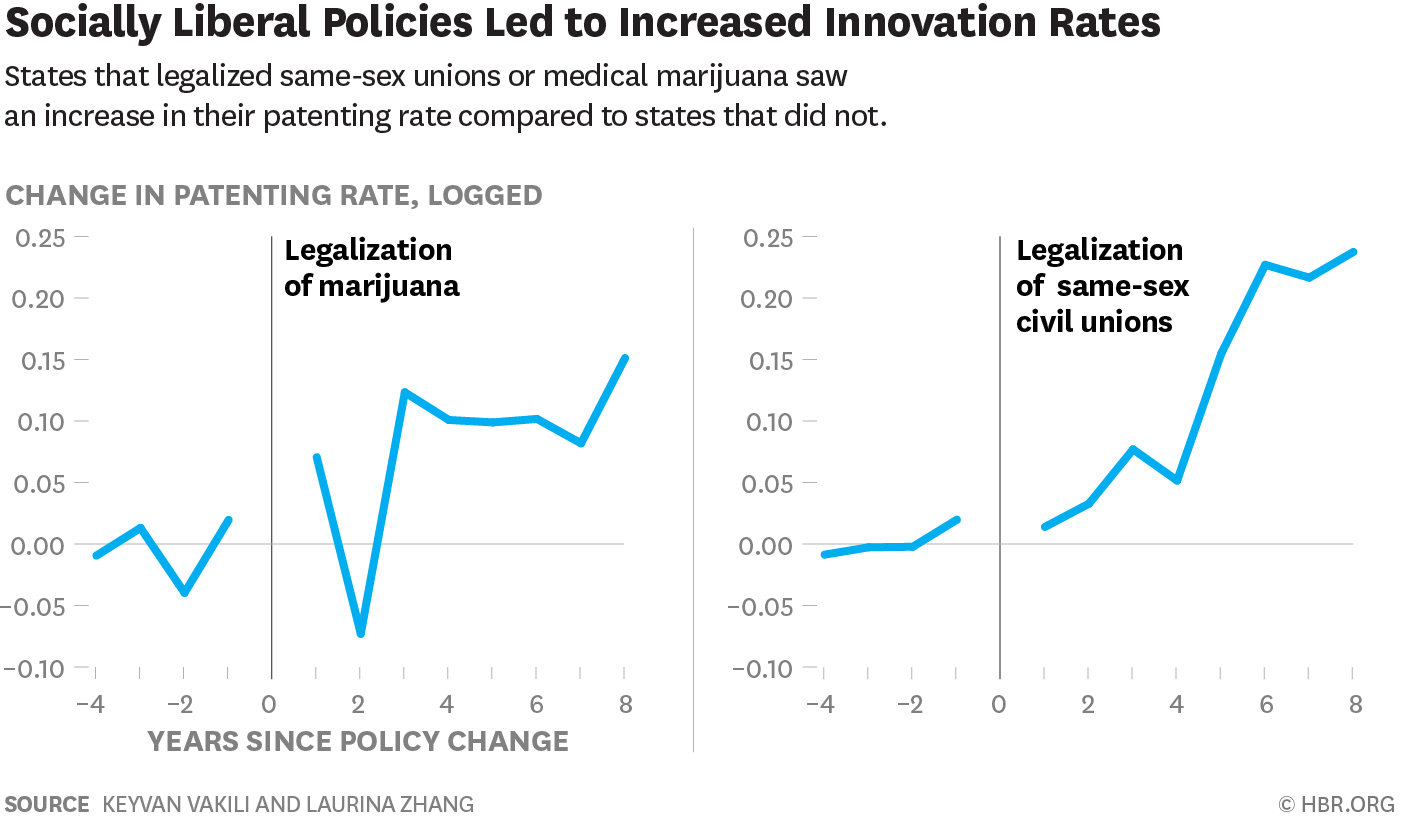Category: Diversity, Silicon Valley
Mar 26
How Legalization of Marijuana and Same Sex Marriage Boost Innovation Rates
The last team that I had worked with until 2013 at my former employer SAP was composed of 13 members coming from 10 countries with as many languages. What at first may sound like a cacophony of characters and ideas, was exactly that. But at the same time this was one of the most productive and innovative teams I had worked with.
Much more innovative than other teams, which were filled with members from the same country. Even that this team took more time to find the right path, the ideas coming from that team were more comprehensive and the final solutions way better. That’s one reason why I have been promoting diversity in teams to encourage innovation and collaboration.
Silicon Valley-visitors notice diversity at every meeting with founders, Venture Capitalists, and employees. And this is reflected in the stats. More than half of all households in Silicon Valley do not have English as their primary language.
Laws and regulations supporting diversity are directly contributing to corporate success and also economic growth of a region. A recent study by two researchers from the London Business School and Georgia Institute of Technology clearly demonstrate that by focusing on US states. The study authors compared the number of patents to measure innovation rates after the introduction of social and anti-social policies. Two of the several laws and regulations that they looked at were same sex marriage and legalization of marijuana.

Innovation rates after introduction of social liberalization policies (C) HBR
US states have some leeway in passing their own laws, as long as they don’t violate the US constitution. States that passed social liberalization policies saw a boost of innovation rates by 5 to 66 percent. States that passed anti-social liberalization laws such as anti-abortion laws saw an innovation decrease of 1 percent.
Passing social liberalization policies influences the attitude of inhabitants in regards to openness, diversity, and trust and increase the interaction between people with different attitudes, life styles, or ethnic background, both in the private and professional environment. And that leads to more and higher quality ideas.
Societies that reject that as a result have lower innovation rates and lower economic growth. Entrepreneurs who focus on diversity can directly influence that within their organizations. Opening a shiny innovation lab or have people attend some Design Thinking-courses is not sufficient to make innovation a sustainable element of corporate culture. The focus during recruiting should be on candidates that are different in gender, sexual orientation, ethnic background and nationality, education and training, handicap and more can enable each corporation to solve their innovation problems. My private and professional experience taught me how important that is for me to grow by having my attitudes and thinking challenged.
Here is more about that study.
This article has also been published in German.

Recent Comments